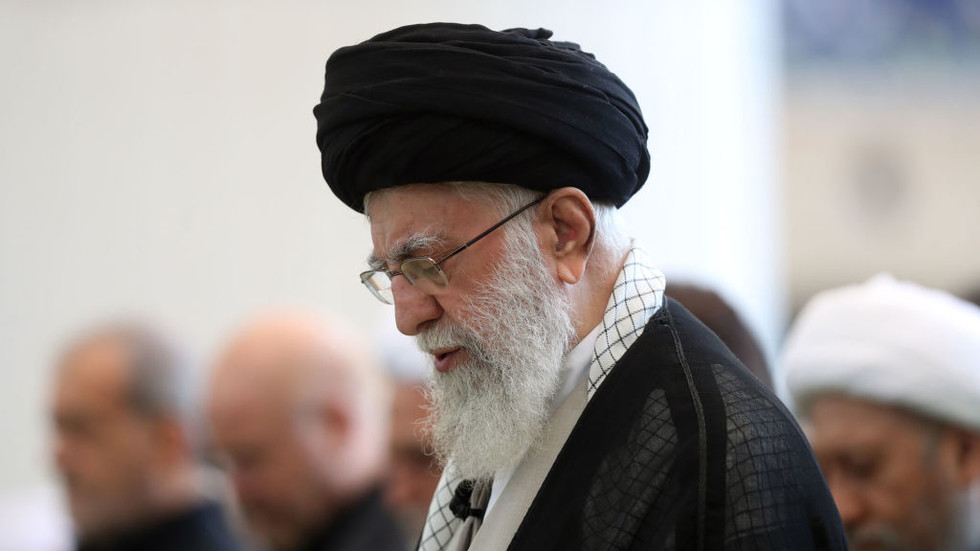Iran’s Supreme Leader, Ayatollah Ali Khamenei, has responded to the escalating tensions between Israel and Palestine, primarily focusing on the ongoing conflict that began with Hamas’s surprise attack on Israel last year. In his first public sermon in nearly five years, Khamenei justified Hamas’s actions as a “logical and legal” response to what he described as the Zionist regime’s aggression. He emphasized that the situation represents a culmination of suffering for the Palestinian people and reiterated Iran’s staunch opposition to Israel’s military actions, particularly its ongoing military campaign in Gaza, which has reportedly claimed the lives of over 41,000 Palestinians. This surge in violence has ignited heightened tensions across the region, drawing support from Iran and Hezbollah for the Palestinian cause.
Khamenei characterized U.S. support for Israel as a key factor allowing the Israeli regime to persist, framing Israel’s survival as dependent on Western allies. He declared that the Palestinians have the legitimate right to defend their homeland, emphasizing that aiding them is a moral and legal obligation under international law. He considered the Palestinian struggle as not just a local issue but one that resonates with broader global principles of justice and resistance against oppression. His remarks reflect Iran’s commitment to supporting those who oppose Israel, positioning it as an ally of all individuals or groups fighting against foreign aggression in the region.
The Iranian leader did not shy away from threatening retaliatory actions against Israel, denouncing the state as “a usurping and bloodthirsty regime.” He described Iran’s missile attack on Israel as a necessary measure and the “minimum punishment” for Israel’s persistent military operations targeting civilians in Gaza, which have included bombings of residential areas, schools, and hospitals. By framing the conflict as a defensive struggle, Khamenei sought to rally regional solidarity against Israel, promoting the narrative that the conflict is fundamentally rooted in resistance against an oppressive force.
In analyzing the broader context of the Middle East, Khamenei criticized foreign intervention, particularly asserting that U.S. involvement has perpetuated instability rather than fostering peace. He articulated a vision wherein regional countries could achieve security and peace independently, free from external pressure and influence. The Supreme Leader argues that America’s ulterior motives revolve around exploiting the resources in the region and using Israel as a vehicle to accomplish its geopolitical ambitions. This rhetoric aims to reinforce Iran’s position within the ‘axis of resistance’ against perceived imperialistic aspirations.
The backdrop of Khamenei’s statements coincides with a year marked by significant violence and humanitarian crises in Gaza, where years of blockade and military operations have resulted in unprecedented casualties and suffering. The Iranian leader’s rhetoric could also be interpreted as a call to arms for regional allies and as a means of consolidating Iran’s influence in Middle Eastern geopolitics. The Iran-Hezbollah-Hamas alliance is presented as a unified front in the struggle against shared adversaries, mobilizing sympathy for the Palestinian plight as a critical element of their narrative.
As tensions continue to rise and the violence persists, Khamenei’s assessment provides insight into the ideological foundations of Iran’s foreign policy and military posturing in the region. His emphasis on self-defense rights for the Palestinians underscores a broader anti-imperialist sentiment, while framing the conflict within a religious and moral discourse serves an essential purpose in galvanizing support from various factions in Iran and the wider Muslim world. The unfolding situation suggests a complex interplay of local grievances, regional ideology, and global geopolitics that continues to shape the trajectory of the Israeli-Palestinian conflict.

